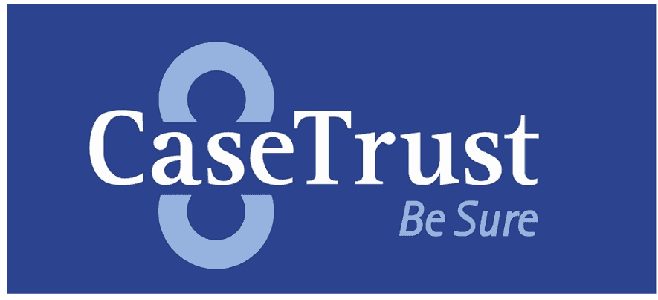Introduction
Estate planning is the process of planning how your estate ought to be distributed after you have passed away. However, many people are uncomfortable about estate planning because they do not wish to think about what is to come, or they believe that they barely have anything to leave behind to their beneficiaries and the law will automatically vest their estate to their loved ones.
This article seeks to highlight the importance of estate planning and encourage starting early rather than later or in some cases, not at all.
Why is Estate Planning Important?
Estate planning ensures that your loved ones receive a share of your estate. For people who do not leave behind a will, their estate would be distributed according to the rules found in the Intestate Succession Act (Cap. 146)[1]. The law sets out specific rules on who would receive your estate and this would not take into account any specific intentions you may have.
One common example is a person who passes away leaving behind his parents, his wife and his children. Under the law, only his wife and his children would receive a share of his estate. His parents would not be receiving any part of their son’s estate.[2] In order to adequately provide for your intended loved ones and beneficiaries, estate planning must be done.
Estate planning is not only about distributing your assets. It includes making a decision on who to involve upon your death. Who would you consider a trustworthy and responsible person to distribute your estate to your beneficiaries? If you have children below 21 years old, who would be a suitable and caring guardian for them? Who would you want to receive a portion of your estate, and who might you wish to exclude?
Estate planning is also understandably a great act of love and consideration for those around you.
If you leave behind a will, your loved ones would have certainty over how you intended to distribute your estate. This saves them from the stressful and tense situation where others might demand a share of your estate due to the absence of your will. Also, the cost of estate planning while you are still alive is a cost incurred by you which is much lower than what your beneficiaries may have to pay from their own pocket later when you pass away.
If you find yourself in a situation where you have lost mental capacity and require someone to make decisions in your best interest, you would already have decided on the person(s) you trust to bear this responsibility. This saves them from potential conflicts and stalemates should they fail to agree on who should bear this responsibility and whose decision is truly the best for you.
Getting Started
Estate planning starts with the knowledge of what you have and making decisions on how to deal with them.
A. Wills
A Will is a legal document with instructions on how your assets will be distributed when you pass away. By leaving behind a will, your estate would not be distributed according to the fixed rules under the Intestate Succession Act, but according to your intentions.
Consider the assets you have and perhaps the liabilities such as bank loans and debts you might have. Choose your beneficiaries. Select someone you trust to be responsible for distributing your estate. If you have infant children, who is a suitable guardian for them when you are gone?
You can also find out the answers to 5 commonly asked questions on wills in this article.
B. CPF
CPF monies cannot be distributed under a will. Instead, a nomination form is required to be filed with the CPF Board to distribute your CPF monies to your intended beneficiaries. Otherwise, the CPF monies will be distributed in accordance with the fixed rules under the Intestate Succession Act.
C. Immovable Property
If you are the sole owner of your immovable property, such as your flat or house, you can distribute the property as part of your estate. However, if the property is held by you along with one or more other persons, you must also consider how the property is held.
If it is held with other persons as tenants-in-common, you will be able to distribute only your share of the property. If the property is held in joint tenancy, then the rule of survivorship will apply. This means that when one joint tenant passes away, the surviving joint tenant(s) will become the sole owner of the entire property. Therefore, you cannot distribute this property if you hold it as joint tenants with other persons and that you have passes away first.
D. Life Insurance Policies
If you own any life insurance policies, ensure that you have nominated your intended beneficiaries. If there are not nominations made for your insurance policies, the insurance pay-outs will form part of your estate to be distributed under your Wills if there is one or the Intestate Succession Act if you do not have a Will.
E. Lasting Power of Attorney
A Lasting Power of Attorney is a legal document which allows you (the donor) to appoint someone (the donee) to make decisions for your personal welfare and/or property and affairs in the event you lose mental capacity and the ability to make decisions yourself.
Who is someone you trust to make such decisions regarding your personal welfare and your property and affairs? Would this person keep your best interest in mind when making such decisions for you? If you would like to nominate more than one person to be your donee, would you like them to work together when they make decisions, or would a decision by either of your chosen donees be sufficient?
F. Advanced Medical Directive
An Advanced Medical Directive is a legal document which anticipates a situation in which you become unconscious and terminally ill where death is imminent, and/or become unable to convey and exercise a decision and informs the doctor in advance that you do not wish to use any extra-ordinary life-sustaining treatment to prolong your life. By having an Advanced Medical Directive made when you are physically fit, you get to decide on how you would be taken care of should you fall into an unfortunate medical situation.
G. Trust
A trust is a method where you (the settlor) use a trust instrument to appoint a person (the trustee) to hold the legal title to a property and manage it, while your intended beneficiaries hold the equitable title to the property. This manner of holding allows the trustee to manage your property for the benefit of your intended beneficiaries according to your instructions and wishes.
You can find out more about the common types of trusts in Singapore through this article.
Conclusion
Estate planning may require time and careful planning but it is not an impossible task. The difficulties and possible inconveniences you overcome now to plan out your estate would place a lighter burden on your loved ones in the future. In order to provide for and leave a legacy behind for them, consider getting started today.
[1] S 7 of the Intestate Succession Act
[2] S 7, Rule 3 of the Intestate Succession Act.



